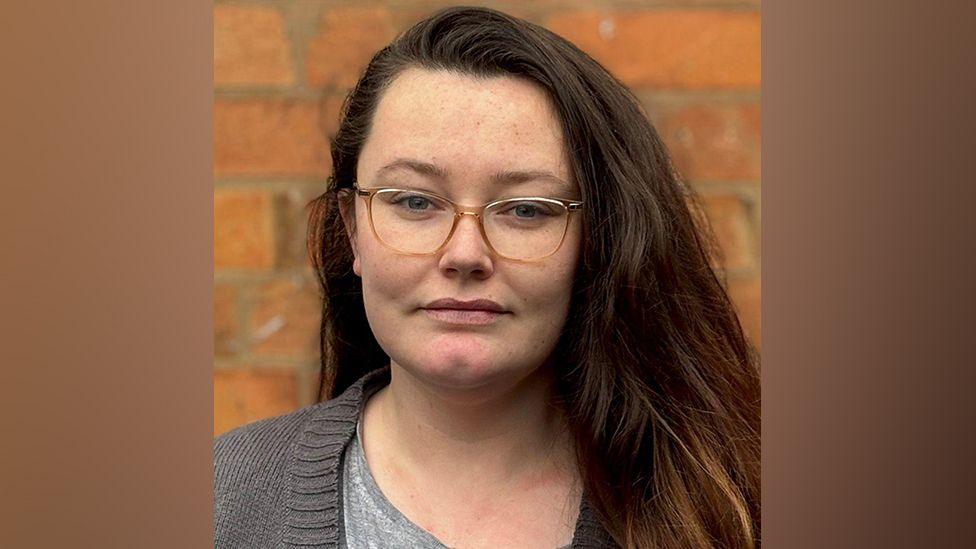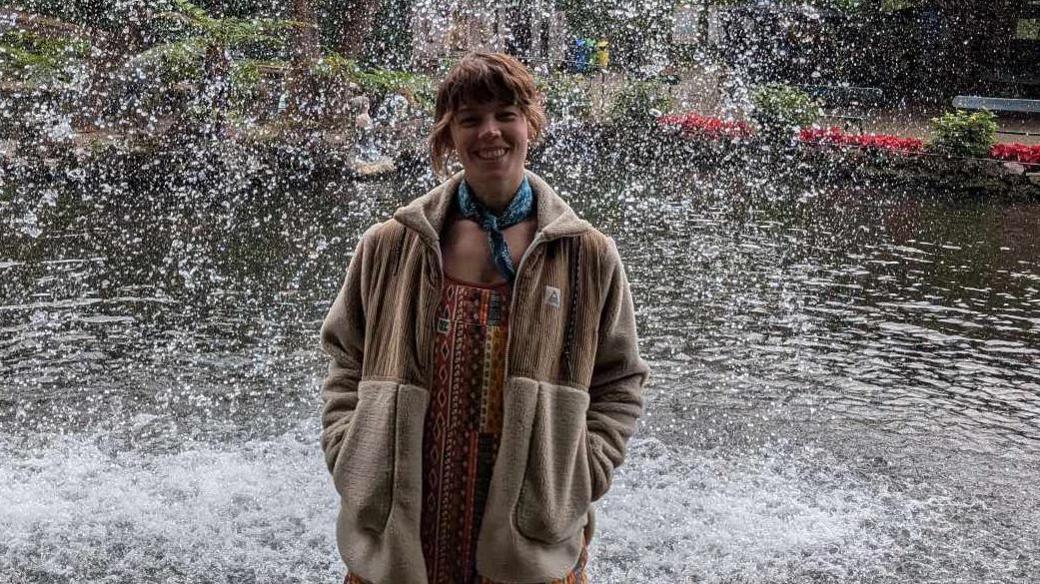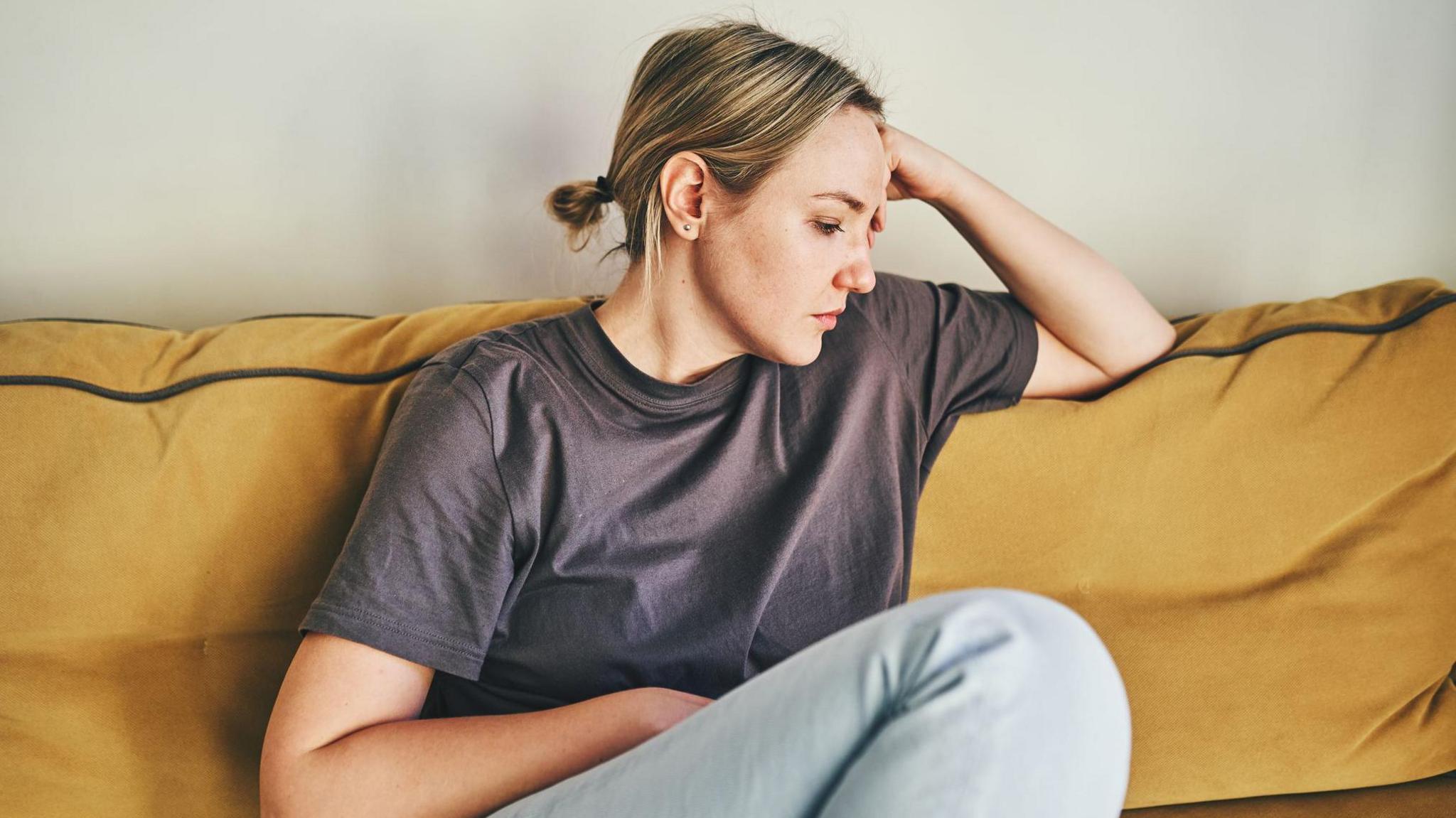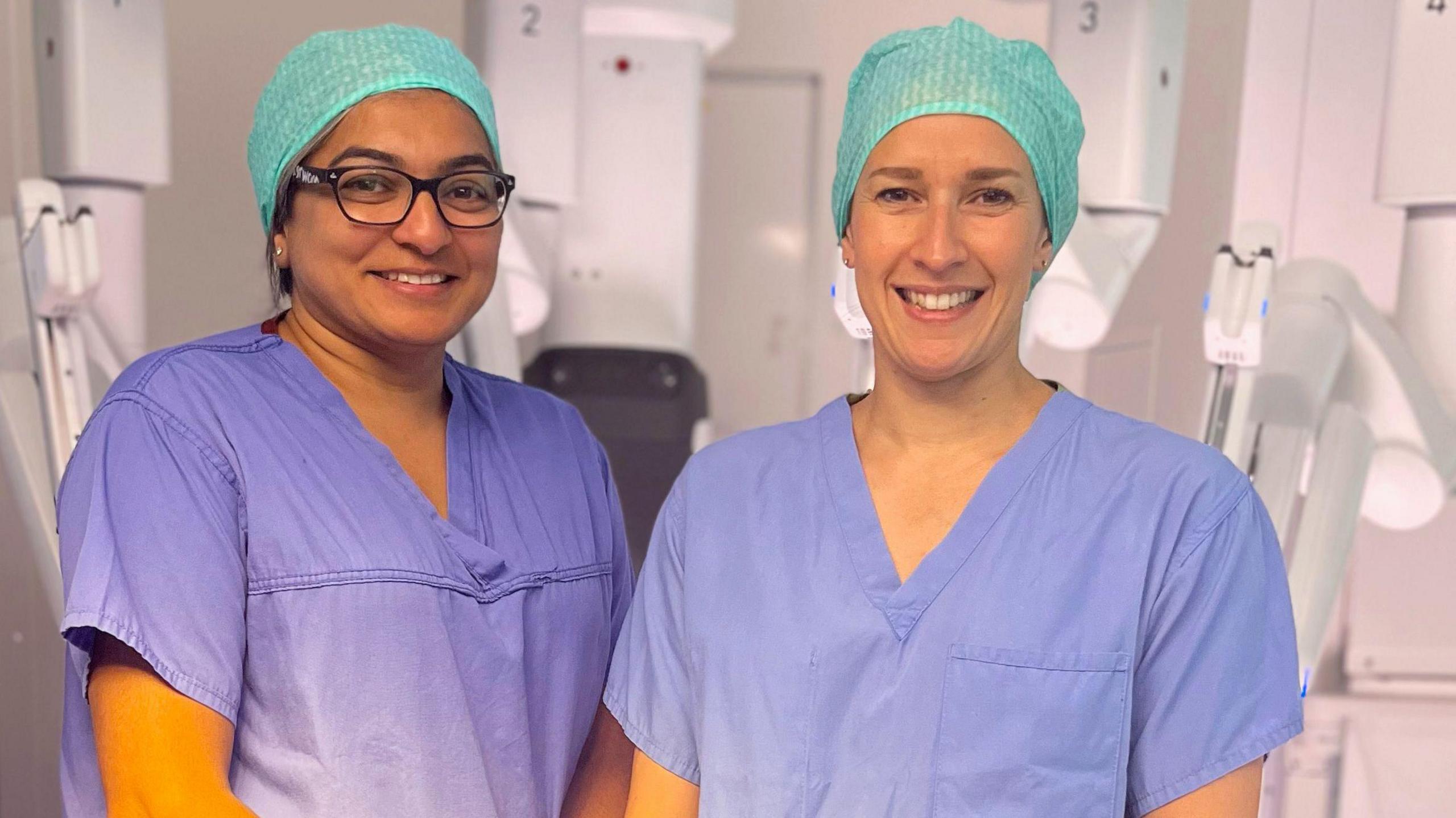'We want people to take our pain seriously'

Emily Brown said she was one of countless women who had their health concerns wrongly dismissed
- Published
Emily Brown had been complaining to her GP about problems with her period since she was 16.
But it took several years before Ms Brown, from Worcester, was able to get any acknowledgement of the severe pain she was in, and ultimately a diagnosis of endometriosis.
A report by MPs has warned that women with painful health conditions including endometriosis are having their concerns dismissed by medical professionals - an experience all too familiar to Ms Brown.
"It wasn't until [four years later], when it started getting very debilitating, that I was taken seriously by anyone," she said.
Ms Brown, 28, runs an online support group for women with endometriosis and said her personal experience was far from unique.
"I've seen stories of women who have been brushed off, who have been ignored, who have... been told things that frankly aren't true. Like pregnancy's going to cure your endometriosis," she said.
"There isn't a cure."
Gina Shutler, 35, from Weobley, was originally told by her female GP that she did not have endometriosis, despite her symptoms.
At times the pain was so bad she had to take time off work, but she believed what her GP had told her.
"We're led to think that it's to be expected that you're in pain once a month," said Ms Shutler.

It took Gina Shutler several years to get a diagnosis, despite her chronic severe pain
Ms Shutler's symptoms were so bad that she left a successful career at the Ministry of Defence because she found it difficult to sit at a desk for long periods of time.
She now works from home.
"It's been very difficult trying to decide what things I can and can't do with my life," she said.
"I don't know if the pain's going to get worse.
"It makes so many things uncertain, it's really difficult to work out how to live your life sometimes."
Ms Brown said that "medical misogyny" was part and parcel of the healthcare system.
"Women make up approximately 70% of chronic pain patients, but only 80% of the pain medication has been tested [on women]," she said. "It's all been tested on men."
She is calling for medical professionals to be better trained in women's health.
"We need to go in at a base level and really be educating people on women's bodies," she said.
"We are all fighting for people to take our pain seriously."
Get in touch
Tell us which stories we should cover in Hereford & Worcester
Follow BBC Hereford & Worcester on BBC Sounds, Facebook, external, X, external and Instagram, external.
Related topics
- Published11 December 2024

- Published31 August 2024
